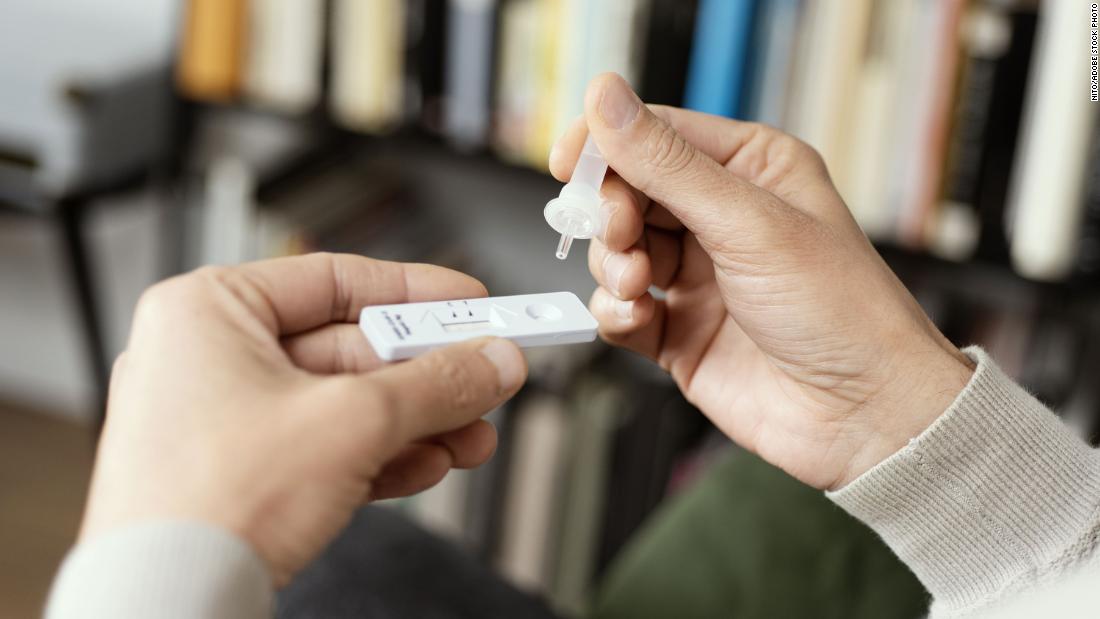Now under federal review, both pills are being hailed by infectious-disease doctors not prone to superlatives.
“This is truly a game changer,” said Dr. Daniel Griffin, an expert on infectious diseases and immunology at Columbia University. “This is up there with vaccines. It’s not a substitute for vaccines; we still want to get people vaccinated. But, boy, this is just another great tool to have.”
The new regimens, which require 30 or 40 pills to be taken over five days, have been shown to dramatically reduce hospitalizations and prevent deaths in adults with mild to moderate covid who are at risk for severe disease because of age or underlying conditions. But experts say the success of the treatments would hinge on one uncertain factor: whether high-risk patients infected with covid will be able to get tested — and then treated — fast enough to make a difference.
“Early, accessible testing and access to the results in a time frame that allows us to make a decision is really going to be key to these medications,” said Dr. Erica Johnson, who chairs the Infectious Disease Board of the American Board of Internal Medicine. “It puts the onus on our public health strategy to make these available.”
In clinical trials, molnupiravir, the antiviral drug developed by Merck & Co. and Ridgeback Biotherapeutics, was given to non-hospitalized, unvaccinated, high-risk adult patients within five days of their first covid symptoms. Pfizer’s product, Paxlovid, was tested in similar patients as early as three days — just 72 hours — after symptoms emerged.
“That’s just not human nature,” said Kelly Wroblewski, director of infectious disease programs for the Association of Public Health Laboratories. “If you have a sniffle, you wait to see if it gets worse.”
Even when patients do seek early care, access to covid testing has been wildly variable since the start of the pandemic. U.S. testing capacity continues to be plagued by a host of problems, including supply-chain bottlenecks, staffing shortages, intermittent spikes in demand and results that can take hours — or far longer.
“Get ready,” Griffin said. “You don’t want to call someone four days later to say, ‘Ooh, you’re now outside the window,’ and the efficacy of this oral medication has been lost because of problems on our end with getting those results.”
Doses of the drugs distributed by the federal government would go to states and patients at no cost. But only a fraction of the planned inventory will be available to start, said Dr. Lisa Piercey, Tennessee’s health commissioner, who has been part of a small group of state health officials working on the distribution plans.
Under one scenario, in which 100,000 courses of the Merck drug are available as early as Dec. 6, Piercey said Tennessee would receive just 2,000 patient courses even as the state is reporting more than 1,200 new cases a week on average. Deciding which sick patients receive those scarce supplies will be “an educated stab in the dark,” Piercey said.
The antivirals will be cheaper than the monoclonal antibody treatments, which cost the government about $1,250 per dose and can carry infusion fees that leave patients with hundreds of dollars in copays. The pills are much easier to use, and pharmacies likely will be allowed to order and dispense them for home use.
Still, the antiviral pills won’t replace the antibody treatments, said Dr. Brandon Webb, an infectious-disease specialist at Intermountain Healthcare in Salt Lake City.
Questions remain about the long-term safety of the drugs in some populations. Merck’s molnupiravir works by causing mutations that prevent the virus from reproducing. The Pfizer treatment, which includes Paxlovid and a low dose of ritonavir, an HIV antiretroviral, may cause interactions with other drugs or even over-the-counter supplements, Webb said.
Consequently, the antivirals likely won’t be used in children, people with kidney or liver disease, or pregnant people. They’ll need to be administered to patients capable of taking multiple pills at once, a couple of times a day, and those patients should be monitored to make sure they complete the therapy.
“We’ll be on an interesting tightrope in which we’ll be trying to identify eligible patients early on to treat them with antivirals,” Webb said. “We’re just going to need to be nimble and ready to pivot.”
KHN (Kaiser Health News) is a national newsroom that produces in-depth journalism about health issues. Together with Policy Analysis and Polling, KHN is one of the three major operating programs at KFF (Kaiser Family Foundation). KFF is an endowed nonprofit organization providing information on health issues to the nation.




